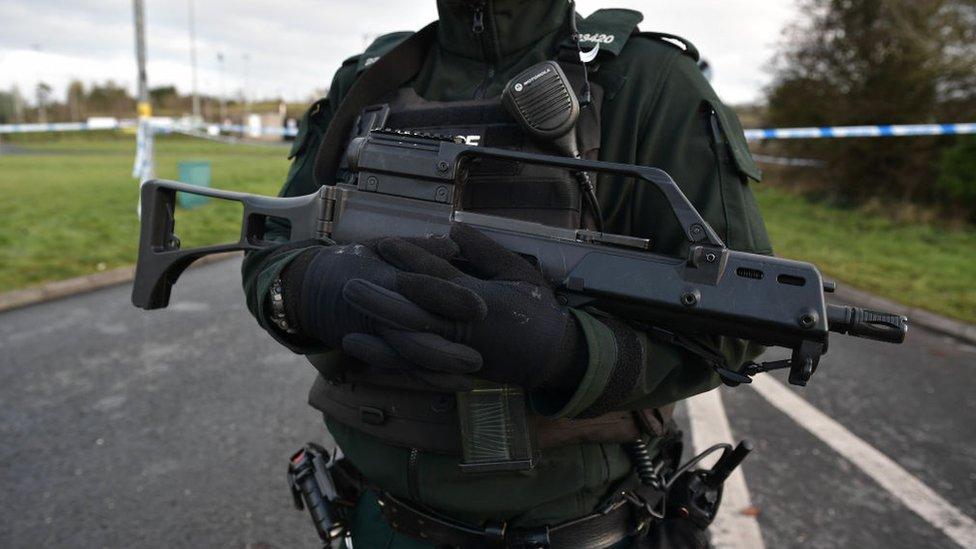Simon Byrne: What went wrong for the PSNI's chief constable?
- Published
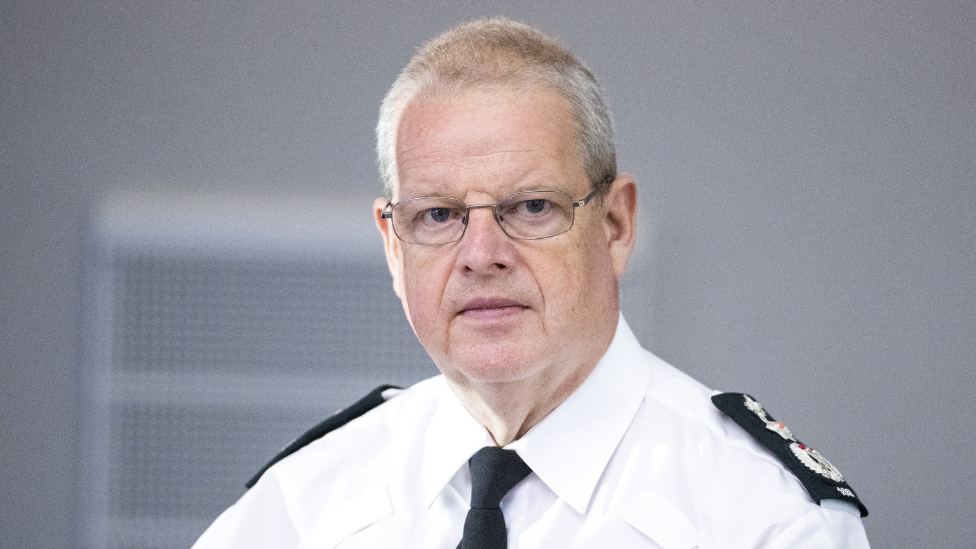
Simon Byrne joined the Police Service of Northern Ireland (PSNI) in 2019
A summer of discontent proved to be the downfall of Police Service of Northern Ireland (PSNI) Chief Constable Simon Byrne.
A full vote of confidence at the start of June rapidly eroded as he lurched from crisis to crisis.
The month of August proved to be catastrophic for him.
It was on 1 June that the Northern Ireland Policing Board, which oversees the PSNI, announced it had unanimously agreed to extend Mr Byrne's contract by three years.
At the start of August came news of a major data breach when surnames and initials of 10,000 police employees were accidentally included in a freedom of information response.
Then came news of the theft of personal data from a superintendent's car in County Antrim.
Mr Byrne was already under pressure when a High Court judgement at the end of August ruled that two junior PSNI officers had been unlawfully disciplined for an arrest made at a Troubles commemoration in Belfast.
It proved to the final straw for the chief constable who resigned on Monday.
He made plenty of headlines during his four years in charge, with paramilitaries, a pandemic and political instability making a difficult job even harder.
By his own admission, the 60-year-old former Cheshire chief constable made mistakes.
Before the recent incidents, there was a range of controversies.
The list was long, but he always retained sympathy and support in some quarters.
One of his police constables recently said: "It's an impossible job…there's so much politics to navigate around in Belfast, you're only ever one step away from tripping into the next crisis."
'Sorry for any offence'
Critics of Mr Byrne say that too often he tripped himself up.
Although it was more than three years ago, many people still remember his misguided photo-opportunity beside officers holding large rifles in south Armagh on Christmas Day 2019.
When the picture appeared on Twitter, there was disbelief among many inside and outside the PSNI.
In a subsequent statement, Mr Byrne said it was "never meant as a comment on the community of Crossmaglen and south Armagh".
He added: "I am sorry for any offence that has been caused."
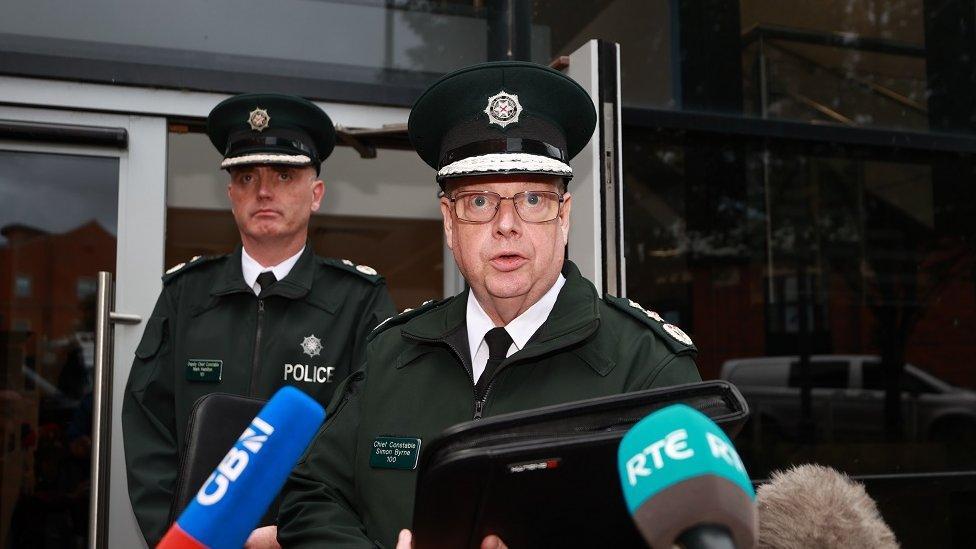
Simon Byrne with Deputy Chief Constable Mark Hamilton
It was six months into his time in the top job and the incident fuelled suspicions that he was struggling to grasp the nuances of life in Northern Ireland.
Mr Byrne began his policing career as a Met constable in 1982 and became an assistant chief constable at Merseyside in 2006.
He was deputy chief constable of Greater Manchester Police for two years and assistant commissioner for territorial policing in the Metropolitan Police from 2011 to 2014, before becoming chief of Cheshire Police.
In 2018, Mr Byrne was cleared of misconduct allegations after being accused of bullying and humiliating staff.

Troublesome tenure
TIMELINE: Simon Byrne's setbacks and controversies
DATA BREACH: How did it happen?
COURT RULING: Why were officers unlawfully disciplined?

In the summer of 2019, he became the PSNI's fifth chief constable. It was third time an English officer had landed the post.
He said at the time: "I've had a passion for policing. I think it's in my DNA, after 30-odd years. And when this job was there, I thought it was too good a chance to miss."
He was given a five-year contract and a salary of more than £200,000.
At the height of the Covid pandemic in 2021, Mr Byrne faced repeated calls for his resignation from unionist political parties in a row over how the PSNI handled the funeral of senior republican Bobby Storey.
However, he rode out the furore and later managed to win support for an extension to his contract.
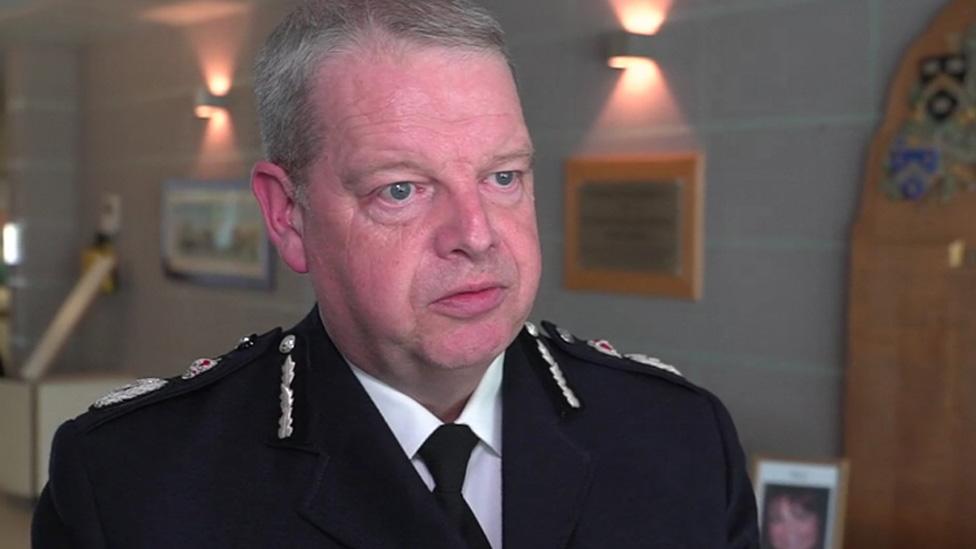
Simon Byrne was previously the chief constable of Cheshire Police
The PSNI has just under 6,700 officers.
The dangers they face was highlighted by the recent attempted murder of DCI John Caldwell by dissident republicans in Omagh.
Mr Byrne repeatedly called for more officers and a bigger budget.
The political vacuum in Northern Ireland did not help him.
The power-sharing executive at Stormont collapsed last year and there seems little prospect of a comeback in the near future.
'The one phone call you never want to get' - police chief
Twenty-five years after the Good Friday Agreement, the political landscape in Belfast is clouded by difficulties, and it is the same in policing.
The departure of Simon Byrne means there is the chance of a new start and fresh thinking.
However, the Byrne era showed how difficult the job can be.
Managing 6,000 officers and trying to protect them from danger, while keeping an eye on the politics of Northern Ireland, and dealing with a limited budget, is quite a juggling act.
In the end, it was all too much for Simon Byrne.
- Published30 August 2023
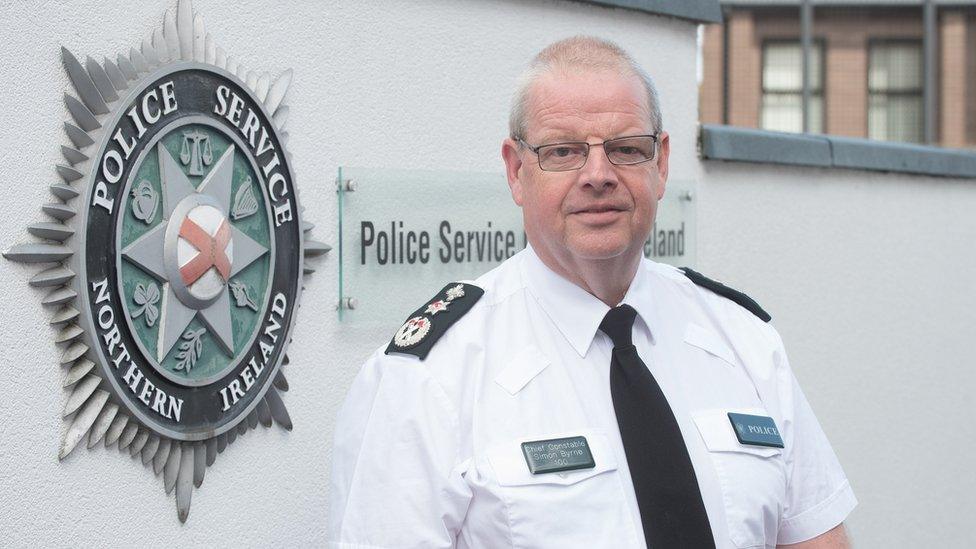
- Published9 August 2023

- Published30 March 2021
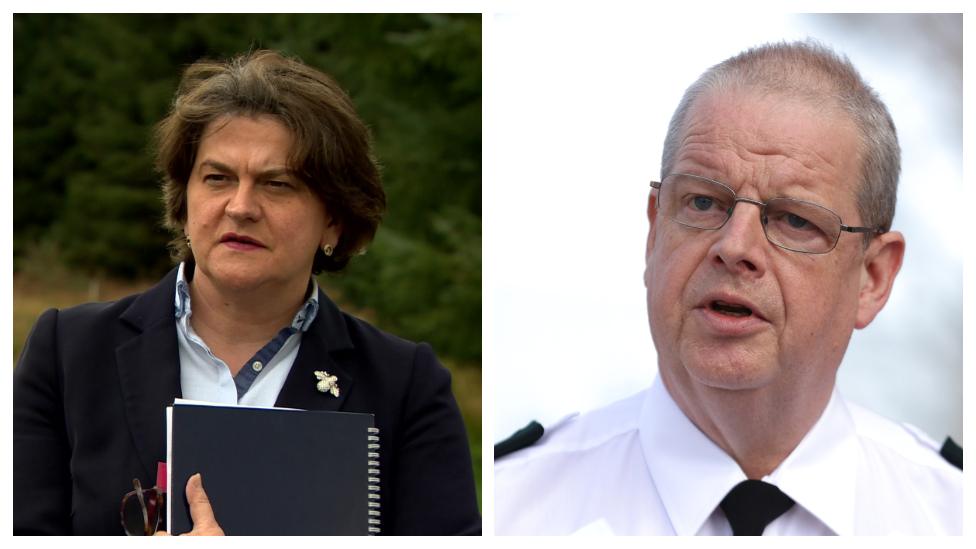
- Published14 August 2023
